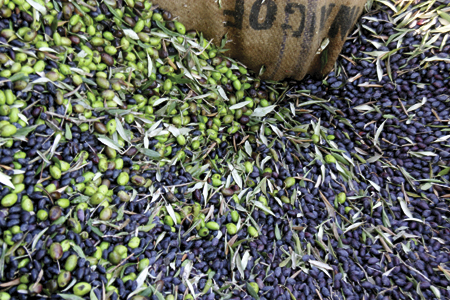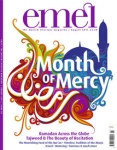
Seeds of Justice
Issue 83 August 2011
With Israeli date exports to the UK totalling $60m a year and Ramadan approaching, Khadija Gulamhusein explores Zaytoun, a community interest company that looks to provide a positive solution to the problem.
When I think of Ramadan, the first image that pops into my mind is of a succulent box of dates. After a long day without food, dates are a healthy and nutritious food source to ease into the breaking of the fast. Yet most people assume that the dates they purchase in Ramadan come from a Muslim country in the Middle East. Even if they don’t, they hardly imagine that the dates they buy often originate from Israeli suppliers, and in many cases, from farms situated in the Israeli-occupied territories.
In 2010, Israel’s date exports grew by 20%, trustytime88 generating staggering revenues of $60 million. Devastatingly, much of this revenue came from the UK market, from date sales in the month of Ramadan. The Israeli Ministry of Agriculture has estimated that in the next decade, the date sector will be one of its top agricultural sectors.
In response to shocking figures such as these, Zaytoun, a community interest company was created in 2004, in an attempt to create a UK market for Palestinian produce. In addition to selling Palestinian products such as olives, olive oil, almonds and herbs, the initiative also sells Medjoul dates, harvested in the Jordan Valley in the West Bank.
Medjoul dates are considered to be the finest of dates. They have often been referred to as the ‘king of dates’ and the ‘crown jewel of dates’. Despite severe water shortages in the West Bank, due to an unfair and disproportionate allocation by the Israelis and a restriction on digging new wells, harvesting Medjoul dates on the land has been the ideal compromise. Date production requires only a third of the water needed for the production of other fruits like bananas, making it an efficient use of scarce resources.
Prior to the retailing of dates through Zaytoun, farmers in the Jordan Valley were often forced to sell their dates considerably below cost price. This was as a result of stiff competition from illegal Israeli settlers in the Jordan Valley, made possible by generous subsidies from the Israeli government. When date harvest began in the Jordan Valley in 2000 for the first time, like many other projects aimed at the betterment of the Palestinian situation, it was met with hostility from the Israeli military. But despite intimidation, Jordan Valley farmers have persisted, and date production has been successful year on year.
Yet, despite their success so far, Jordan Valley farmers continue to face obstacles. Only 6% of their produce is sold abroad, whilst the remaining 94% is sold locally, and faces unfair competition from settler farmers. In order to reverse their fortunes, Palestinian farmers require greater support from consumers in the UK, Italy, Belgium, Germany, Holland, and New Zealand, where Palestinian Medjoul dates are currently sold.
In the words of Zaytoun’s UK Director, Atif Choudhury, “Despite all the difficulties, Zaytoun and Palestine’s farmers are steadfast in their right to be able to produce and sell dates from their own land. The Jordan Valley has a diversity of soil that enables them to produce all sorts of fruits that are not grown in abundance elsewhere. With more support from consumers in the UK, the farmers hope to be able to increase production so they can stand on their own feet and earn a living with the dignity they deserve.”
For the third consecutive year, Zaytoun is working with Friends of Al Aqsa and the Palestine Solidarity Campaign to encourage consumers to ‘check the label’ and see where the dates with which they break their fast are sourced. Zaytoun is at the forefront of a movement fighting for Palestinian justice. “Behind every Medjoul date we produce is a community and a family,” says Taysir Arbasi, project manager of Zaytoun Palestine. “Working with Zaytoun and selling our dates in the UK means everything to us. It means people are listening. It means that people are celebrating our dignity and supporting our future. We are Palestine.”
The Medjoul Date project has only recently been launched, yet its UK director recognises that international exports have begun to change the status quo in Palestine. “Future investments and support for the buying of Palestinian Medjoul dates at fair trade prices is a real fight against the poverty trap that Israel’s occupation has created,” Atif says. “With more UK Muslims buying Palestinian dates for Ramadan, the connection to Palestine from our homes in the UK is quickly becoming a shared reality. With over 2.5 million Muslims living in the UK, our numbers and collective action has the potential to make a powerful difference.”
Bookmark this |
|
Add to DIGG |
|
Add to del.icio.us |
|
Stumble this |
|
Share on Facebook |
|
Share this |
|
Send to a Friend |
|
Link to this |
|
Printer Friendly |
|
Print in plain text |
|


Comments
0 Comments